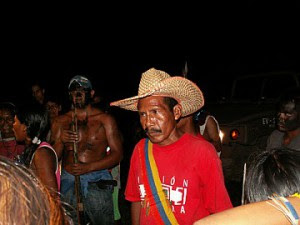Among the hundreds of thousands of secret US State Department cables recently released by WikiLeaks, the controversial whistleblower website, a cache reveals US diplomats defending the interests of big pharmaceutical companies, even at the risk of the hosting nation’s own public health priorities. The memos dutifully detail the many embassy meetings with local Big Pharma reps, during which US officials are presented with laundry lists of issues to raise with one or another local government ministry. Invariably the goal of the exercise is for pharma to pressure the US to pressure the host country to give favorable treatment to expensive brand name drugs, typically by preventing in-country manufacturing or marketing of far cheaper generic versions.
Separate cables show such industry profiteering tactics threatening to taint US diplomatic relations in emerging nations such as Hong Kong, the Dominican Republic, the Philippines, Turkey, Venezuela, Saudi Arabia, and India. Overall, a familiar picture emerges of a diplomatic corps if not held hostage by, at least a captive audience to, the financial interests of the biggest American pharma companies as they come into covert conflict with developing nations that quite naturally prioritize the health care of their people over the high margins that Big Pharma has come to expect. With several hundred drugs and vaccines in development to treat addiction, the scourge of hundreds of millions worldwide, the affordability and accessibility of these innovative (and, no doubt, expensive) medicines will become a pitched battle in global public health over the next decade. The outcome of the skirmishes sketched in the WikiLeaks cables will help decide whether profits or people prove victorious.
The cables by no means paint a uniform portrait of government lackeys doing industry's bidding. Many memos betray a between-the-lines irritation at pharma's monomaniacal self-interest. Still, there is a disturbing silence on the obvious moral or ethical objections to industry demands for high price, long patents, and other protections despite the cost in human lives. Only a single cable—from the outgoing US ambassador to Poland in 2009—lays bare the vast greed that drives these complex, highly technical negotiations.
The developing nations, contrary to what you might expect, in many ways hold the best cards in this political game. Emerging nations have the fastest-growing economies, the most upwardly mobile middle classes, and the biggest untapped markets in the world. And in their impressive pushback against Big Pharma, India has been the 800-pound gorilla over the past decade. A democracy with well-educated but relatively inexpensive brain power, the pharma industry views India not merely as a market but as a potential new hub of drug development and testing.
Aware of its advantage, India has played hardball, starting with its approval of local generic HIV drugs for its hundreds of thousands of citizens with the virus—a defiant challenge to Big Pharma, which had refused to discount its own brand-name AIDS drugs to affordable levels. (In the US, HIV treatment costs as much as $15,000 a year; the Indian generic knocked out knockoffs with a $350 price tag.) In addition, India’s supreme court has been fearless in shooting down foreign pharmas when they sue for patent infringement by Indian generic companies. When an emerging nation's entire legal and legislative apparatus unite to oppose industry interests, the company can either fold its hand or fold up its tent. When drug companies retaliated by boycotting India and refusing to sell new drugs there, they attracted universal opprobrium for denying sick people medicines.
MORE
